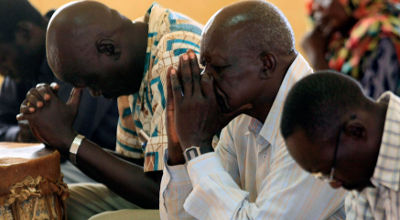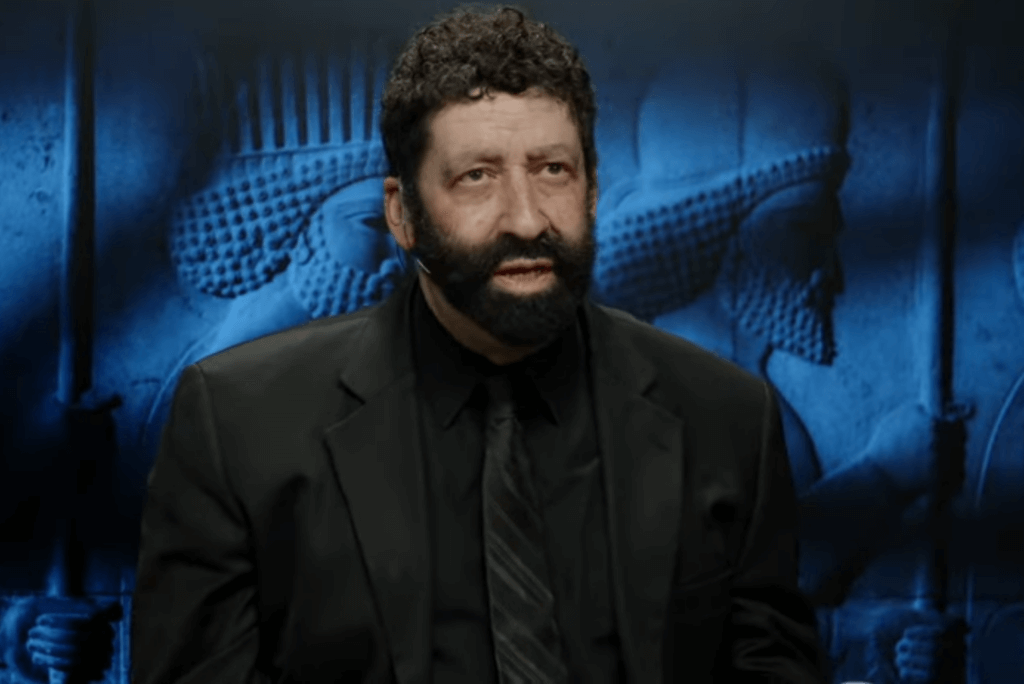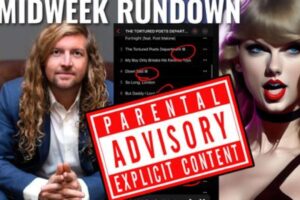When Pastor Kamis went to visit his small church in the Sudanese capital just before Christmas last year, he found a pile of rubble and the remains of a single blue wall.
Hours earlier, authorities had sent in a bulldozer and workers backed by police to demolish the Africa Inland church, which used to lie in a slum suburb of Khartoum.
The structure was one of several small churches that the government has knocked down over the past few months, shocking Christians who worry they will not be able to practice their faith in majority-Muslim Sudan now that the country’s south—where most follow Christianity or traditional animist beliefs—has seceded.
“The government says the land was owned by some businessman, but I think they destroyed our church because they want to target Christians,” said Kamis, a native of South Sudan, which split away in July 2011.
Sudan’s President Omar Hassan al-Bashir has said he wants to adopt a “100 percent” Islamic constitution now that the South has split off.
The government says the new constitution will guarantee religious freedom, but many Christians are wary. They say authorities started a crackdown in December and it has been getting worse.
Last week, security agents raided the library of the Sudan Presbyterian Evangelical Church, founded by missionaries in central Khartoum more than a hundred years ago, seizing all books to check on their content, church sources told Reuters.
“They took hundreds of books and the entire archive, not just religious literature,” said a church source, who like most others interviewed for this article asked for anonymity or to be identified by only their first and last name for fear of arrest.
Several church-affiliated institutions such as orphanages or schools have also been closed and a number of foreigners working for them have been deported, according to the Geneva-based World Council of Churches, a global ecumenical church body.
“Christians in the north are compromised because they are no longer respected. They cannot even celebrate Christmas anymore,” said Daniel Deng Bul, the Juba-based archbishop and primate of the Episcopal Church of Sudan, which covers both Sudans and is part of the Anglican community.
Most southerners have moved south since the birth of their country but some 350,000 are estimated to remain in Khartoum. Some Christians also live in the Nuba Mountains, a region bordering South Sudan.
Although Muslims have dominated Sudan for centuries, Christian roots go back to the 5th century. Missionaries were active in the 1800s, mainly from the Anglican, Presbyterian, Catholic, Africa Inland and Coptic churches. Without accurate census information, it is not yet clear what the current breakdown is. Some tribes also practice animist beliefs.
Hardline Islamists
Officials strongly deny any discrimination against Christians. “All religions can practice their faith in total freedom,” said Rabie Abdelati, a senior official in Bashir’s National Congress Party. “There are no restrictions at all.”
Authorities say Kamis’ church was bulldozed only after it lost a legal case against a businessman who claimed the land.
“The church was erected on land owned by a citizen who filed a complaint,” said an official at the government land protection unit, which removes illegal buildings. He asked not to be named.
“In November 2011 we took the decision to remove the church which has no permit to use the land. We gave the church several warnings.”
But church officials ask why only the church, built around 2000, was demolished and not the buildings right next to it in the densely inhabited district. Less than one km away in the same area lie the remnants of the St. John church of the Episcopal Church of Sudan, which authorities also tore down. Officials pointed to a missing license in that case, too.
Christians concede that some churches were built without formal paperwork but say that was because permits or licenses to build proved so difficult to obtain, and authorities signaled they would tolerate them.
The situation was exacerbated after secession when South Sudanese became foreigners, requiring them to get new building permits for existing churches which authorities didn’t grant.
For archbishop Bul, the license argument is just an excuse to clamp down.
“You cannot get a license and then they ask you where is the license? So how do I get the license – from God?,” Bul said.
Bashir has been facing pressure from religious hardliners who feel his government has given up the values of his 1989 Islamist coup. He has been also facing small street protests in Khartoum and other cities against galloping inflation.
Mobs stormed several churches in Khartoum last year, in one case burning Bibles in public. Activists say the government did little to prevent the attacks.
“Authorities did not investigate properly or prosecute those responsible,” said Jehanne Henry, a Sudan researcher at New York-based Human Rights Watch. “We have seen clear signs of rising intolerance for religious and ethnic diversity since the separation of South Sudan.”
In September, a crowd attacked the U.S., British and German embassies to protest against a film which mocked Islam’s Prophet Mohammad.
The peaceful demonstration permitted by the government was hijacked by Islamists who first attacked the embassies and then turned the march into an anti-government protest after two people were killed in clashes with riot police.
Since that incident, officials have tried to appease Islamists, worried about their ability to mobilize the crowds.
In December, Sudan’s tightly controlled press began printing accusations that foreign missionaries were planning to convert Muslims, a crime punishable by death in Sudan.
A group of foreigners—some church sources say more than 100 people—were deported when newspapers reported a Muslim girl had been baptized.
Some of the deported were only loosely affiliated with churches, such as expatriates giving English lessons to children in their free time.
In Limbo
Many churches and affiliated schools have transferred their ownership from South Sudanese pastors, who have been in legal limbo since they become foreigners after secession, to people from the Nuba Mountains, who are citizens.
Sudan and South Sudan agreed in September to give citizens in both countries the right to live, work and own property wherever they chose to settle, but the pact has not been implemented because border and resource disputes have soured relations.
Transferring ownership has not necessarily resolved the issue. Security agents closed a community centre operating on church land which included a Nuba language school and an English school run by a Nuba teacher.
The Nuba are already viewed with suspicion by officials in Sudan because many sided with the South during decades of civil war and have now joined a rebellion in South Kordofan and Blue Nile states on the border with South Sudan. Khartoum says its arch foe South Sudan is supporting the insurgency.
“We are supposed to be citizens with equal rights but in the eyes of the government we are a foreign entity which seeks to destroy Sudan,” said one Christian of an evangelical church from the Nuba mountains.
Despair and anxiety is palpable in many of Khartoum’s churches, most of which date back to the British colonial era which ended in 1955.
Church leaders say they plan to fight any repressive steps. A delegation submitted a letter to the government addressed to Bashir on Monday asking for the confiscated books, many of which are not available in state libraries, to be returned, a church source said.
In a Sunday service in a tiny mud brick building now used as church next to the bulldozed building, one preacher, who asked to be identified only by his family name Said, tried to convey a message of strength to the few worshippers who have continued coming out since the demolition.
“The government destroyed our church but we don’t have to be afraid,” he said, addressing a crowd of just 11 adults and four children seated on plastic chairs.
“God will always protect us,” Said said, chanting “Hallelujah” while flies flew around in the stuffy room.
Editing by Sonya Hepinstall
© 2013 Thomson Reuters. All rights reserved.
See an error in this article?
To contact us or to submit an article






















